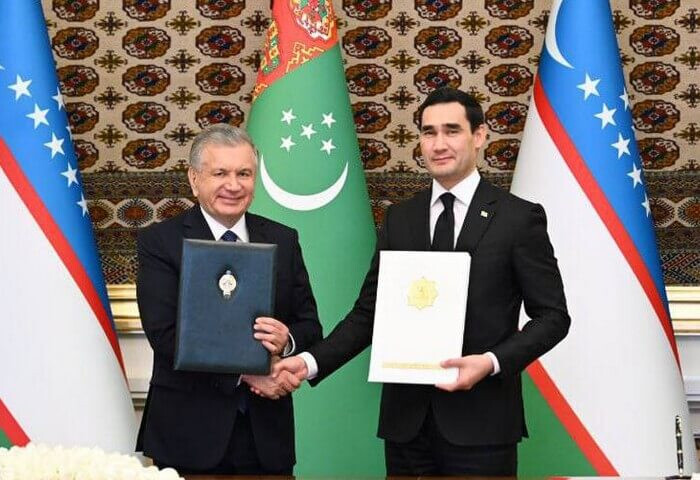
TASHKENT/ASHGABAT – March 7, 2025 – In a significant stride towards regional economic integration, the free trade agreement between Uzbekistan and Turkmenistan officially took effect on February 25, 2025, marking a pivotal moment in the bilateral relations of these Central Asian neighbors. The agreement, which eliminates customs duties on a vast array of goods, aims to catalyze trade, stimulate investment, and foster deeper economic cooperation.
The announcement, released by Uzbekistan's Ministry of Investments, Industry, and Trade, followed the completion of all necessary legal procedures for the Protocol on Exceptions to the Free Trade Regime, initially signed on July 16, 2024, and subsequently ratified by Uzbek President Shavkat Mirziyoyev on January 27, 2025.
Eliminating Barriers, Boosting Trade
The cornerstone of the agreement is the removal of tariffs on key Uzbek exports to Turkmenistan, including cement (previously 100%), textiles (50%), furniture (50%), glass containers (50%), water heating boilers (15%), plastic and polypropylene products (10%), sausages and meat products ($2 per kg), and cottonseed oil ($1 per kg). These tariff reductions are expected to significantly enhance the competitiveness of Uzbek products in the Turkmen market.
"This agreement is a testament to our commitment to strengthening economic ties with our neighbors," stated a spokesperson from Uzbekistan's Ministry of Investments, Industry, and Trade. "By removing trade barriers, we are creating new opportunities for businesses in both countries to thrive."
Trade Dynamics and Economic Impact
The agreement builds upon existing trade momentum. According to data from TurkmenPortal, the trade turnover between Uzbekistan and Turkmenistan saw a 23% increase in the first quarter of 2024, reaching $455 million. Notably, Turkmen exports to Uzbekistan surged by 36%, reaching $407 million. However, Turkmen imports from Uzbekistan declined by 30% during the January-May 2023 to 2024 period, dropping from $69.2 million to $48 million, highlighting some trade imbalances that both countries will need to address.
Economists anticipate that the free trade agreement will stimulate industrial cooperation across various sectors, including construction, agriculture, and manufacturing. The Uzbek government is actively working to support businesses in leveraging the benefits of the new trade framework.
Strengthening Bilateral Ties and Regional Implications
Beyond economics, the agreement signifies a deepening of political and diplomatic ties. Recent high-level meetings between Presidents Shavkat Mirziyoyev and Serdar Berdimuhamedov have underscored the commitment to enhancing cooperation across multiple fronts.
"This agreement is more than just an economic pact; it reflects a shared vision for regional prosperity and stability," said a political analyst specializing in Central Asian affairs. "It sets a precedent for further economic integration in the region."
The success of this agreement could potentially inspire similar free trade agreements among other Central Asian nations, fostering greater regional economic cohesion. However, challenges such as infrastructure development, logistical hurdles, and the need for harmonized regulatory frameworks remain.
Looking Ahead
As Uzbekistan and Turkmenistan embark on this new chapter of economic cooperation, the focus will be on ensuring the effective implementation of the agreement and addressing any emerging challenges. The governments of both nations are committed to fostering a conducive environment for businesses to flourish, ultimately contributing to the economic well-being of their citizens and the broader Central Asian region.
[Copyright (c) Global Economic Times. All Rights Reserved.]






























